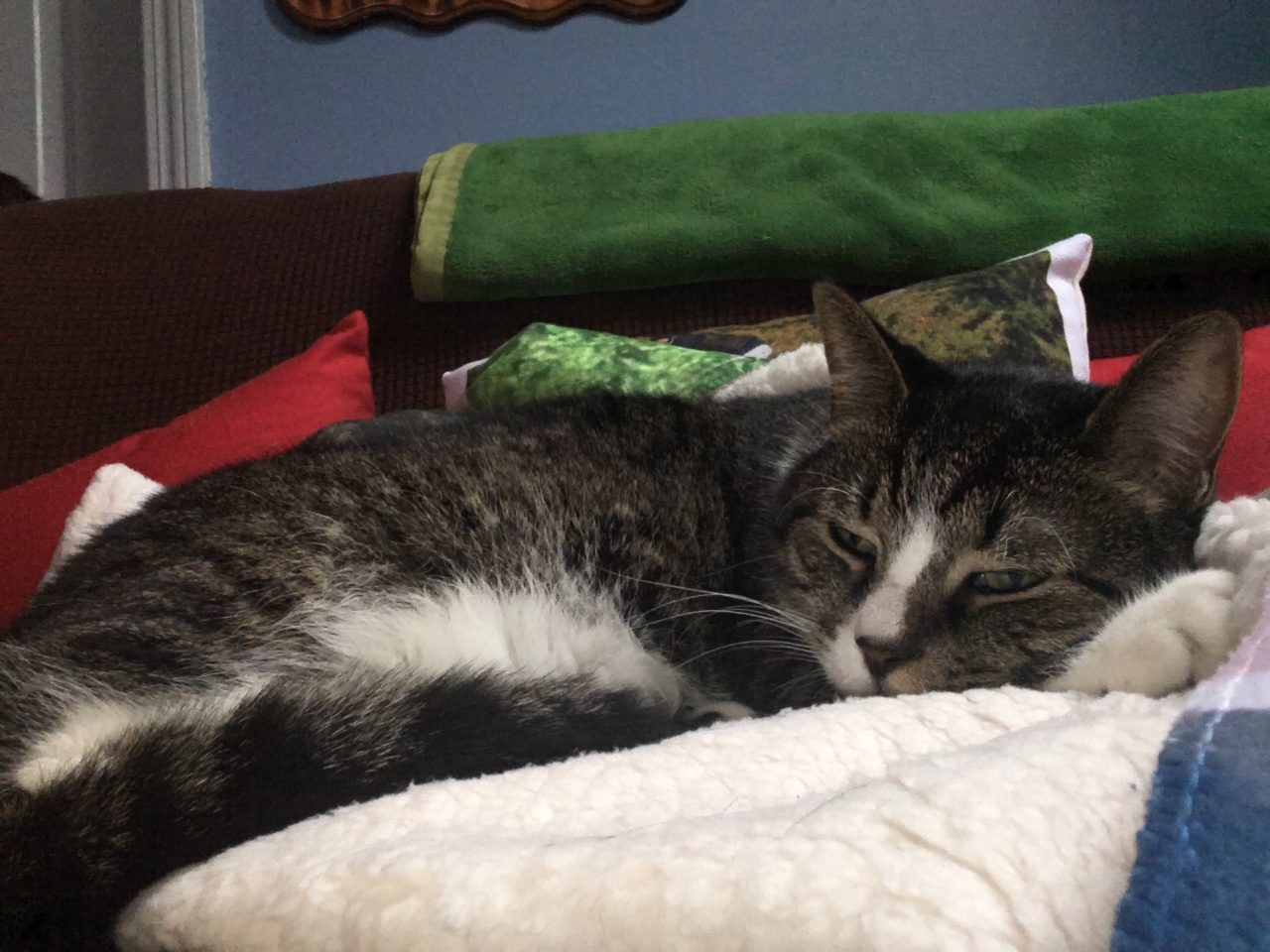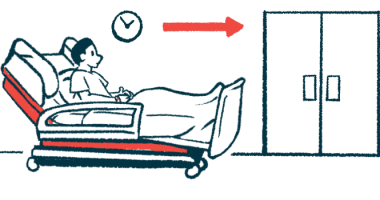EDS and Sleep Hygiene

One of Karen's cats, Harvey, "supervising" while she writes her column.
Sleep disorders are common among people with Ehlers-Danlos syndrome (EDS).
Because a good night’s sleep is essential to your health, both physically and mentally, and to a good quality of life, it may be beneficial for you to practice what’s called sleep hygiene.
What is sleep hygiene?
Sleep hygiene is defined as behaviors you choose to do to promote a good night’s sleep, so you’ll be more alert and active during the day.
Good sleep hygiene means establishing an evening routine, and going to bed around the same time each night. It also means sleeping for about the same amount of time every night.
Sleep and EDS
Compared with the population at large, people with EDS have a disproportionately high prevalence of disturbed sleep. By late childhood, difficulties like obstructive sleep apnea, insomnia, circadian rhythm disorders, periodic limb movement disorder, and hypersomnia may already be known to them and their families.
Sleep deprivation or poor-quality sleep in EDS could aggravate fatigue, affect physical performance, increase the severity of pain, aggravate depression, and, overall, limit the quality of life.
Sleep hygiene tips
Leading up to bedtime, taking a warm bath or having a warm and caffeine-free drink may help, as may reading or doing something relaxing.
Avoid heavy or spicy foods, and alcohol or stimulants shortly before bedtime.
Set your bedroom thermostat at a comfortable temperature. Generally, a little cooler is better than warmer.
Resist reading using a phone or computer, or watching TV for several hours before bedtime. Bright light inhibits the release of the hormone melatonin, which helps you sleep.
Other suggestions include limiting daytime naps to 30 minutes, getting adequate exposure to natural light during the day, balancing fluid intake, and having a comfortable mattress and pillows.
Keeping pain under control is also important to ensuring you get a good night’s sleep. Using heat pads on sore joints can help. You may also want to speak with your physician about pain management. They may prescribe a prolonged-release medication that works throughout the night, as well as sleeping aids. However, these are often not a viable long-term solutions, because your body can become resistant to their effects.
If your sleep still isn’t improving, you may want to get a referral to a sleep clinic, where doctors will assess you and attempt to find the cause of your sleep problems.
Last updated: June 24, 2020
***
Ehlers-Danlos News is strictly a news and information website about the disease. It does not provide medical advice, diagnosis, or treatment. This content is not intended to be a substitute for professional medical advice, diagnosis, or treatment. Always seek the advice of your physician or other qualified health providers with any questions you may have regarding a medical condition. Never disregard professional medical advice or delay in seeking it because of something you have read on this website.






